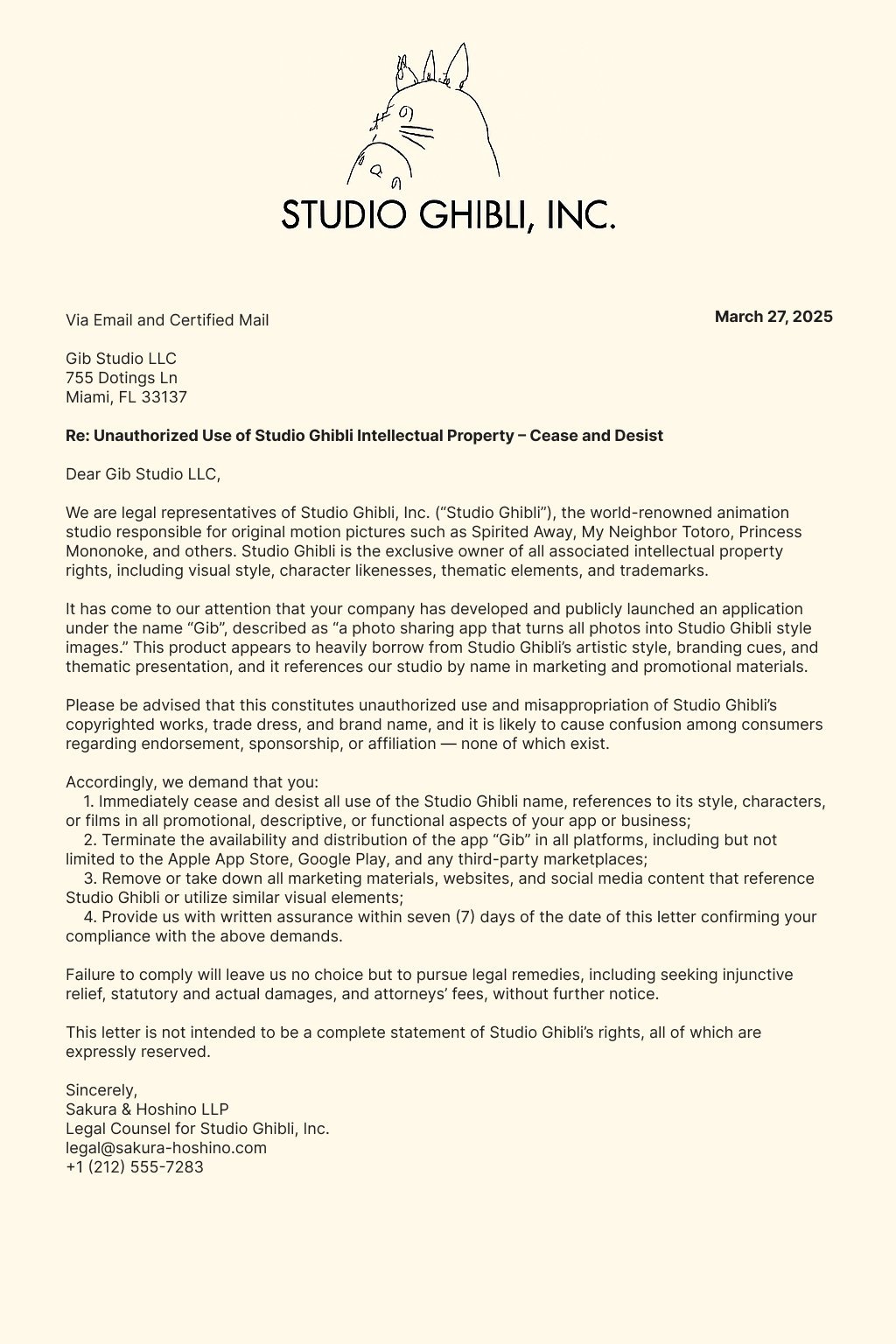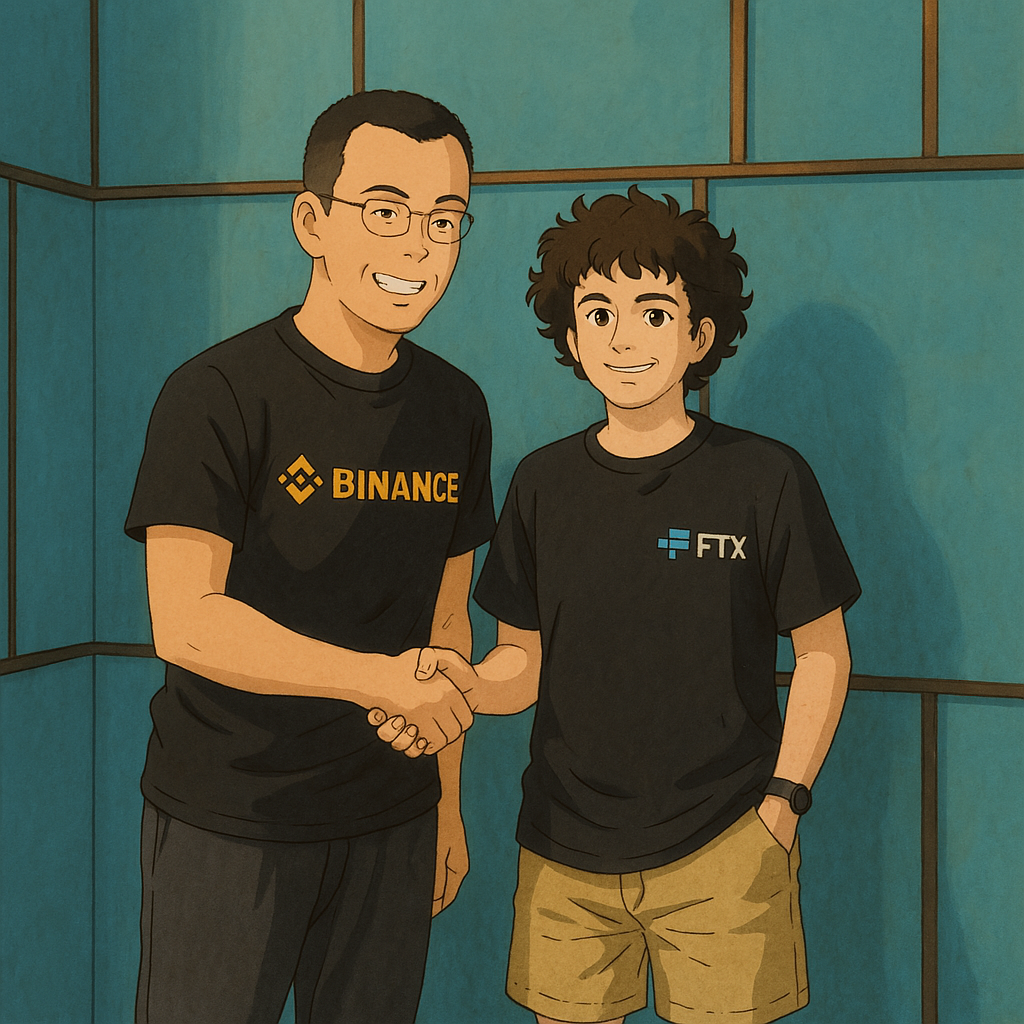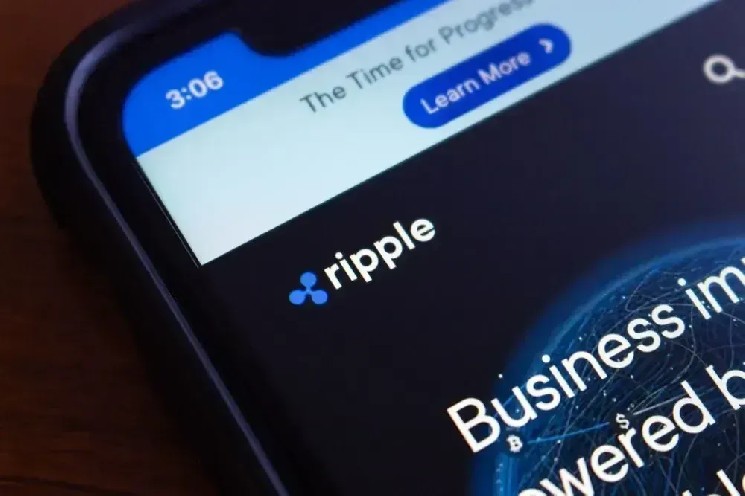ChatGPT 4o just installed image creation enhancement less than 48 hours ago, and netizens worldwide went crazy over Sam Altman and Musk's Ghibli-style images, causing the Ghibli-themed cryptocurrency $GHIBLI to surge instantly. Some are concerned whether such massive replication of Ghibli style might invite legal issues?
Ghibli Warning? Fake!
Today on X platform, a lawyer's statement from Ghibli studio is constantly circulating, demanding an app developer named Gib immediately remove Ghibli-style related content and descriptions, with the company's app product specifically focused on allowing users to upload and convert photos into Ghibli style.

Translated simply, the content reads:
We are the legal representatives of the world-renowned animation studio—Ghibli Studio, which produced original animated films like 'Spirited Away', 'My Neighbor Totoro', and 'Princess Mononoke'. Ghibli Studio is the exclusive owner of all related intellectual property rights, including visual style, character images, thematic elements, and trademarks.
We have noticed that your company has developed and publicly launched an application called "Gib", described as "a photo-sharing application that converts all photos into Ghibli-style images". This product appears to extensively borrow Ghibli studio's artistic style, brand logos, and thematic presentations, and mentions our studio's name in marketing and promotional materials.
Please note that this constitutes unauthorized use and misappropriation of Ghibli Studio's copyrighted works, commercial appearance, and brand names, and is likely to cause consumer confusion about endorsement, sponsorship, or collaboration—which do not exist.
This lawyer's statement of unknown origin, which includes descriptions like "remove or take down all marketing materials, websites, and social media content mentioning Ghibli Studio or using similar visual elements" that threaten legal action if AI imitation doesn't stop, has made many netizens worried.
However, the fact is that the law firm "Sakura & Hoshino LLP" signed on this letter does not actually exist, and there is a very high probability that bored netizens used AI to create this lawyer's letter to cause a stir.

Impressive AI, Complicated Legal Issues
OpenAI 4o model's ability to precisely mimic Ghibli Studio's style is credited to its multiple breakthroughs in image generation technology. The model can accurately render text in images, allowing users to create more information-rich visual content.
However, when AI begins to imitate specific artistic styles, especially those with distinctive visual characteristics and widespread recognition like Ghibli Studio, copyright issues become an unavoidable focus. From a legal perspective, copyright protects the expression of ideas, not ideas themselves, and artistic styles are generally considered to be in the realm of ideas, so typically, imitating a "style of expression" does not directly constitute copyright infringement. Multiple legal experts have also pointed out that merely creating a work "similar in style" to a specific artist's work is usually not considered an infringing act under US or most countries' copyright laws.
Nevertheless, this does not mean generating Ghibli-style images using AI is entirely free of legal risks. The key point of controversy lies in the AI model's training data. If OpenAI used a large number of copyrighted works owned by Ghibli Studio during the training of the 4o model without permission or authorization, such an act could itself constitute copyright infringement.
Some legal scholars argue that AI models copy and learn from original copyrighted works during training, potentially viewing them as "compressed copies" containing training data. However, some perspectives consider this training process falls under "fair use" in copyright law, as it is transformative and does not directly replace the original work's market position. Currently, copyright lawsuits regarding AI image generation continue to emerge worldwide.
Another potential legal concern is whether AI-generated images constitute "substantial similarity" with specific copyrighted works from Ghibli Studio (such as particular character images or classic scenes). If AI-generated images are highly similar to Ghibli Studio's copyrighted works in composition, color, character design, etc., they might be considered derivative works, thus infringing on the original copyright. However, the standard for determining "substantial similarity" is often very complex and requires case-by-case analysis. Additionally, even if not constituting copyright infringement, using the "Ghibli Studio" name or generating images clearly intended to be associated with their brand could trigger trademark infringement or unfair competition legal issues.








